John Heitinga joined Arne Slot‘s coaching staff this summer as an assistant coach, but we were eager to know more about the Dutchman and how he approaches the game.
The 40-year-old joined the club during the pre-season tour to the US, arriving with experience as a player and a coach – and importantly for Slot, had previously spent time in the Premier League.
He played for Everton and Fulham in the topflight and more recently held coaching jobs at Ajax and most recently at West Ham under David Moyes.
You will have seen him in various Liverpool training sessions so far and in the dugout on matchdays, but we have dug a little deeper.
Here, Dutch football journalist Jesper Langbroek (@JesperLangbroek) discusses Heitinga’s move to Liverpool, his time as caretaker at Ajax, and the Dutchman’s pitchside manner.
Was Heitinga’s move to Liverpool surprising for you?
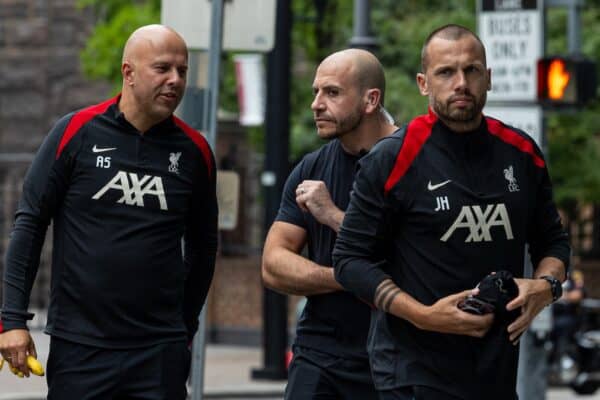
On the one hand, yes, because it was not in the line of expectation.
We knew Heitinga was looking for a new job after leaving West Ham but Liverpool was not an obvious step, especially given his history as a player at a rival club in the same city, Everton.
On the other hand, it was known talks had been going on for a while, Heitinga has a reputation as a capable coach and the Dutch link with Slot is there.
What kind of mark did he make as caretaker manager at Ajax?
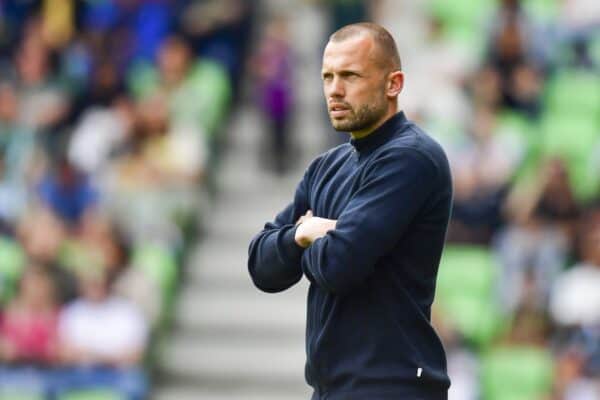
Heitinga became head coach at Ajax in a difficult situation; Alfred Schreuder had been fired after poor results, Ajax were fifth in the league at the time and Heitinga had to save the season.
In Europe the team was eliminated by Union Berlin, but in the Eredivisie they won their first seven games under his leadership.
In big games, however, Ajax won too few points to compete for the title or even second place – the cup final against PSV was lost on penalties.
But, Heitinga cannot be held fully responsible for these results, because he stepped in halfway through the season.
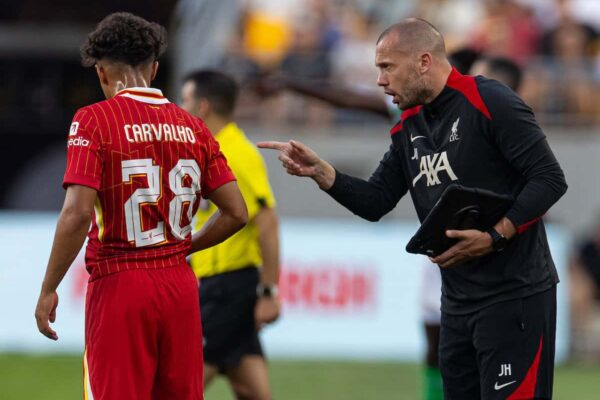
I have the impression that many Ajax supporters feel that the club treated Heitinga unfairly as he was thrown in the deep as an inexperienced trainer in a difficult situation.
After they did not continue with him as head coach, switching back to assistant coach was not an option and he had to leave his club.
The fans still blame the then technical director for it, Sven Mislintant, who is held responsible for Ajax’s crisis. Heitinga was a victim of the chaos at the club.
What do you know about his coaching methods and style of football?
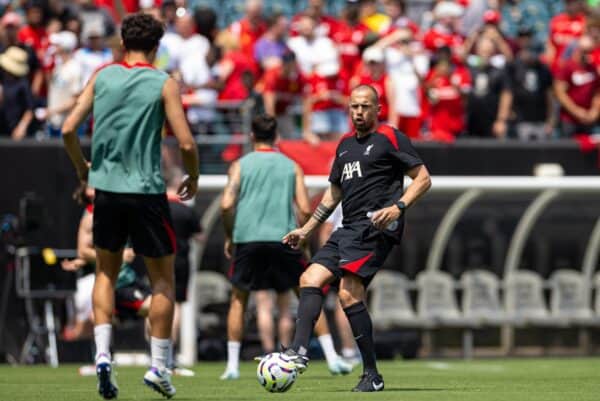
Heitinga is known as a direct and honest coach with whom players get along well.
From his experiences as a player, he knows how important it is for players to have open communication and to know what their role is.
It is not for nothing that Mohammed Kudus, former Ajax player and now with West Ham, praised him for his personality and manners.
Heitinga puts a lot of time into making players better individually, but because of his career at Ajax (as a player and coach) he also knows the importance of the collective.
As head coach he made his team play with the classic Ajax principles of ball possession, high pressure, counter-pressing and direct passing. This is in line with the vision Arne Slot expressed during his time at Feyenoord and which he will take with him to Liverpool.
What kind of an impact did he have at Ajax?
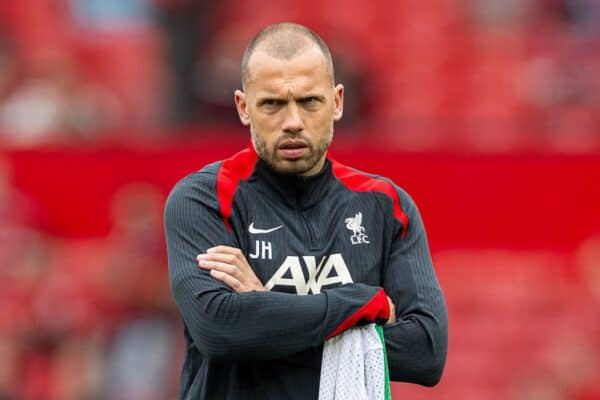
Ajax under Heitinga started their football from behind, not very surprising for a former defender. When in possession, he builds up low, from the goalkeeper and defenders, to provoke the opponents to pressure and take advantage of the space behind them.
This was one of the aspects that made Ajax’s play in possession become a lot better. He improved the positioning of the various lines, which made them play a lot more stable football.
The defensive organisation was the biggest problem that season. Heitinga tried to find a solution to this by building in more defensive security with more players behind the ball.
This reduced the risks of counters, but it also proved difficult to get the players to change their way of playing halfway through the season. If Heitinga had had more time and had been given the chance to prepare for a full season, he probably could have implemented his tactical plan better.
Was he active on the sidelines or calm?
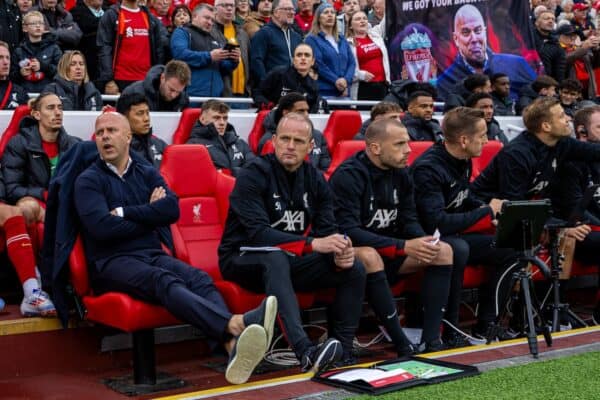
Heitinga, as head coach, is coaching very fanatically along the sidelines. After his first game as head coach (4-1 win over Excelsior), he even came to the press conference with a hoarse voice.
However, as assistant manager, he will know his place and, in cooperation with the manager, only give instructions to the players when necessary or requested.
He will do everything to contribute to winning games, because the passion and will to win, which characterised Heitinga as a player, is still strongly present.
Thanks again to Jesper Langbroek for his insight on Heitinga’s coaching career. You can follow Jesper on X, @JesperLangbroek.
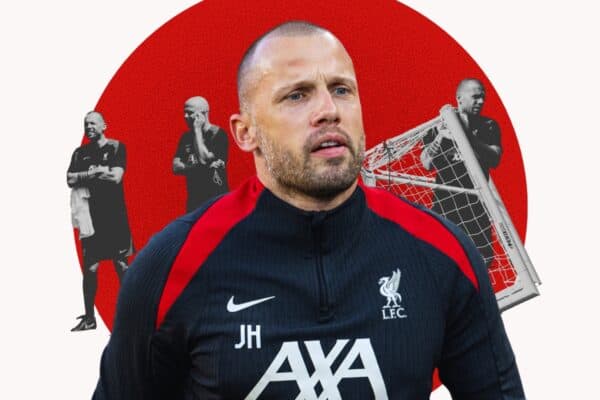
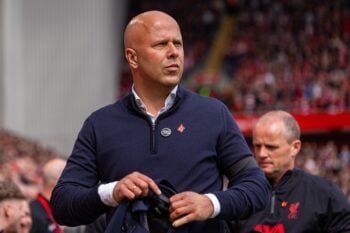



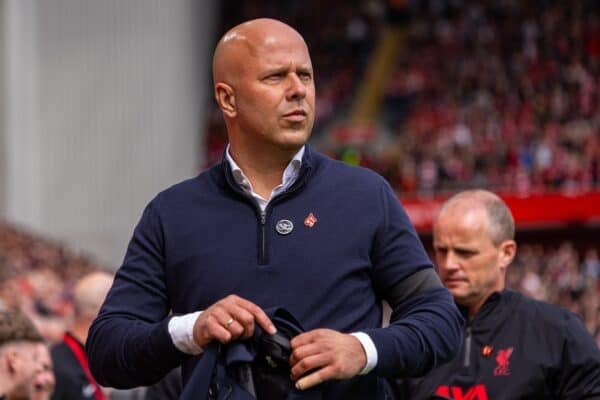
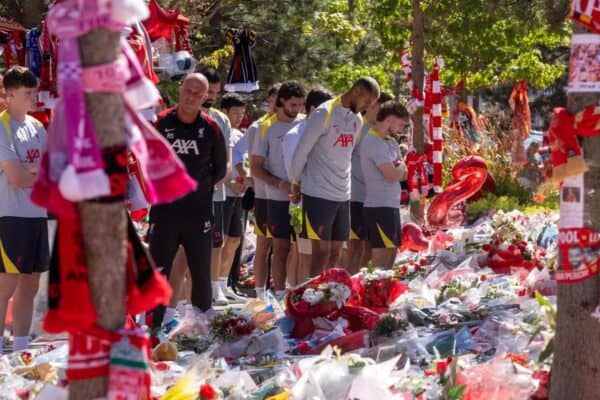










Fan Comments